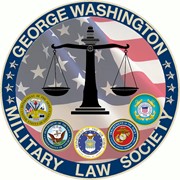International Law and Military Activities in Space
When: Monday, March 23, 2015
Where: Elliott School of International Affairs, 1957 E. St NW, Room 602
On Monday, March 23, 2015, SWF and the George Washington Military Law Society hosted a luncheon panel discussion from 12:00pm to 2:00pm EST on the relationship between international law and military activities in space. This event was held on the George Washington University campus at the Elliot School of International Affairs.
Although some may consider the two to be at odds with each other, international law has a direct impact on military activities in both peacetime and during conflict. International law defines what constitutes an armed attack, the right to national self-defense, and the limits on use of force during an armed conflict consistent with the Geneva Conventions.
Over the last several decades, legal scholars and military practitioners have clarified the rules of international law applicable to military activities in several domains. This includes the Harvard Manual on International Law Applicable to Air and Missile Warfare, and most recently the Tallinn Manual on the International Law Applicable to Cyber Warfare. However, to date there has not been any significant attempts to clarify how international law applies to military activities in space.
The panel discussion provided an overview of international law as it applies to military activities, and examples of how it has been clarified in certain domains, such as air and cyber, or for certain types of weapons, such as autonomous systems. It also examined the current status of international law as applied to military activities in the space domain, and potential benefits of further clarifying the existing norms and interpretations.
Speakers:
- Wing Commander Duncan Blake, Royal Australian Air Force
- Mr. Gary Brown, Head of Communications, Washington Delegation, International Committee of the Red Cross
- Dr. Cassandra Steer, Executive Director, Centre of Research in Air and Space Law, McGill University
- Dr. Peter Hays, Adjunct Professor, George Washington University




 Share
Share